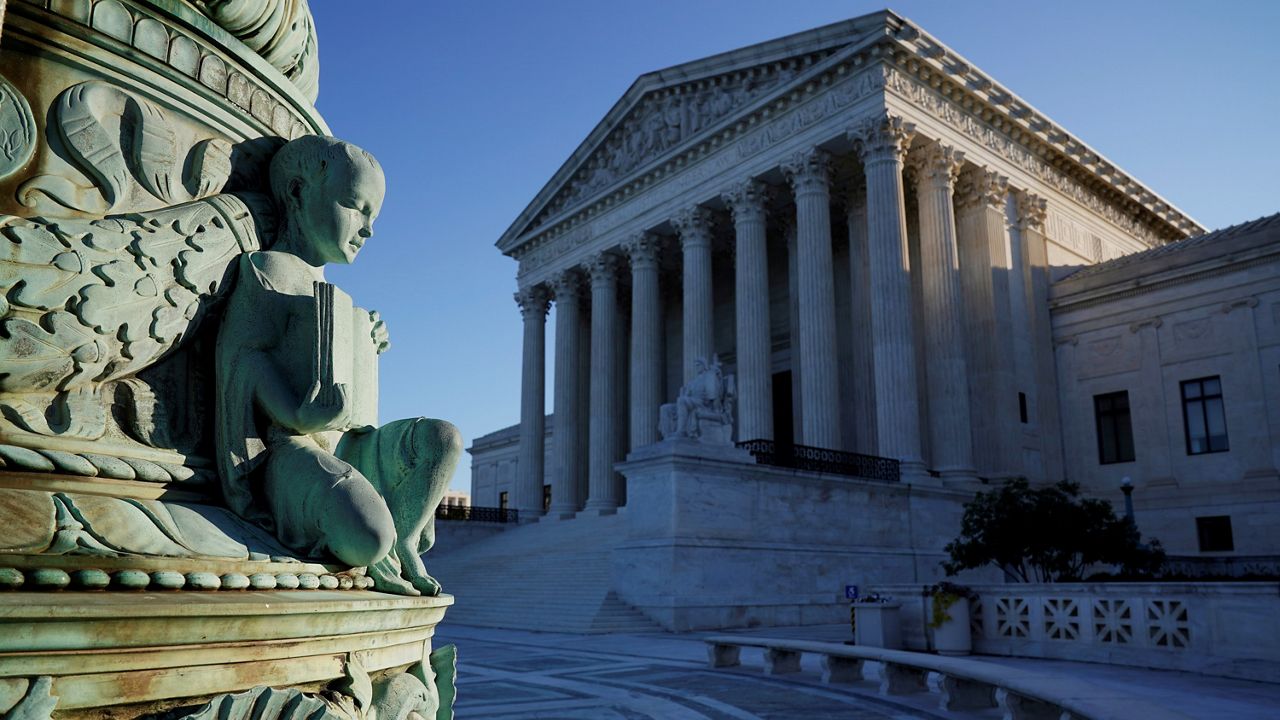The commission tasked by President Joe Biden to study possible changes to the Supreme Court has released some of its highly anticipated initial findings.
While the draft report did not detail any concrete recommendations, it spoke positively about term limits for justices, who currently enjoy lifetime appointments to the bench. On the other hand, it said that while Congress does have the power to expand the size of the court, it was divided on whether or not lawmakers should actually do so.
Some of the members of the panel agreed "at least in part" with arguments to expand the 9-person bench, but others worried that such a move "is likely to undermine, rather than enhance, the Supreme Court’s legitimacy and its role in the constitutional system."
“There are significant reasons to be skeptical that expansion would serve democratic values,” the report reads. “We also raise some tentative concerns about how expansion of the Supreme Court might be received in the broader domestic and international community.”
A number of liberals and activists cried foul at the commission's early findings.
"The White House Commission on the Supreme Court ‘draft’ misses the mark,” Sen. Edward Markey, D-Mass, and Reps. Jerrold Nadler, D-N.Y., Hank Johnson, D-Ga., and Mondaire Jones, D-N.Y., wrote in a statement released late Thursday. “We need more than the Commission’s report. We must pass legislation to expand the Supreme Court.”
Rhode Island Sen. Sheldon Whitehouse also called the report "a disappointment to anyone who’d hoped for a hard-hitting effort to address the Supreme Court’s deep troubles."
The report comes at a tenuous time for the nation's highest court. The court is set to hear arguments in major cases over abortion, guns and other polarizing issues this term. The court's popularity is also at an all-time low of 40%, according to a Gallup poll from September.
The makeup of court shifted decidedly more conservative after former President Donald Trump added three Supreme Court justices during his single term in the White House.
Democrats fumed when, in 2016, the Senate's then-Majority Leader Mitch McConnell and other Republicans blocked then-President Obama from filling the seat vacated by the death of conservative Justice Antonin Scalia, citing the proximity to the 2016 presidential election, which was several months away, among other issues. But at the end of 2020, with just weeks to go until the presidential election, Trump and the Republican-led Senate quickly pushed to have Amy Coney Barrett replace the late liberal Justice Ruth Bader Ginsburg.
Barrett was nominated 35 days before the 2020 presidential election, the shortest period of time between a Supreme Court nomination and a presidential election in U.S. history — and was confirmed just days before the presidential contest.
McConnell himself said over the summer said that should Republicans retake control of the Senate, it would be “highly unlikely” that a Supreme Court nominee picked by President Joe Biden would be confirmed in 2024, an election year.
“I think in the middle of a presidential election, if you have a Senate of the opposite party of the president, you have to go back to the 1880s to find the last time a vacancy was filled,” McConnell said in an interview. “So I think it’s highly unlikely. In fact, no, I don’t think either party if it controlled, if it were different from the president, would confirm a Supreme Court nominee in the middle of an election.”
McConnell, in the same interview, also declined to say what would happen if a Supreme Court justice stepped down or passed away in 2023, a full year before the 2024 presidential election, and Biden sent a nominee to a hypothetically Republican-controlled Senate: "Well, we’d have to wait and see what happens."
The Kentucky Republican once called blocking President Obama's nomination of now-Attorney General Merrick Garland to the Supreme Court as one of his "proudest moments."
Biden formed the commission as a campaign promise amid pressure from activists and Democrats to react after the court's composition tilted sharply to the right during Trump's term.
The commission devoted a significant section of the materials it released to discussing term limits for the justices, who under the Constitution have life tenure. The commission described term limits as the proposal that appears to have “the most widespread and bipartisan support.”
It said a politically-diverse array of scholars have endorsed term limits and that a survey of literature on the subject by the commission “discovered few works arguing against term limits.”
The commission said that three current justices — Chief Justice John Roberts, Justice Stephen Breyer and Justice Elena Kagan — “have noted the potential benefits of term limits.” It also cited experts recommending an 18-year term limit for justices and said that term limits for state high court justices are common.
The report also notes that the United States is the “only major constitutional democracy in the world that has neither a retirement age nor a fixed term of years for its high court Justices.”
The commission said it was divided over whether Congress has the power to create the equivalent of term limits for justices by statute or if a constitutional amendment is required.
With the commission wrapping up its work, calls for action from Congress and the president could increase. During the presidential campaign Biden repeatedly sidestepped questions on expanding the court, and he hasn't said if he supports adding seats or making other changes including imposing term limits. White House press secretary Jen Psaki had said he would not weigh in about the size of the court until the commission finished its work.
The panel is being led by Bob Bauer, who served as White House counsel for former President Barack Obama, and Cristina Rodriguez, a Yale Law School professor who served in the Office of Legal Counsel for Obama.
The Associated Press contributed to this report.



